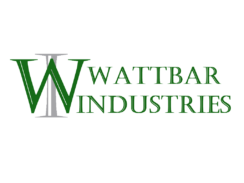Various types of hazardous waste exist, including wastewater, cleaning solvents, sludges generated during industrial product manufacturing, chemical agents, pharmaceutical products, and pesticides. Hazardous wastes pose substantial risks to both humans and animals. It originates mainly from industrial projects, factory work, and medical establishments. Businesses are required to adhere to the regulations established by both the federal (EPA) and state governments when it comes to handling and disposing of medical waste.
So, why is it important to dispose of waste properly? To minimize exposure risks and health hazards, here’s everything your business needs to know about the importance of proper waste disposal.
Understanding Hazardous Waste
For waste to be classified as hazardous, it must contain certain characteristics . The characteristics are outlined in the Code of Federal Regulations (CFR) 40 as established by the Resource Conservation and Recovery Act (RCRA). As the characteristics list is regularly updated, businesses involved in hazardous waste production should always ensure they consult the most recent version.
Some types of hazardous wastes include:
- Laboratory/academia small chemical containers
- Metal bearing materials
- Flammable Liquids (gasoline, solvents, thinners)
- Acidic (pH<2) liquids
- Chemicals like carburetor cleaner, print toner, and brake fluid
- Pesticides, herbacides
- Aerosols (pending generator state)
- Equipment containing ozone-depleting substances such as Freon and other refrigerants
The Importance of Proper Waste Management
Proper disposal of hazardous waste is of utmost importance to protect ourselves, the well-being of animals, and the overall health of our planet. Prior to the establishment of current safeguards, businesses used to dump waste in landfills, leading to seepage into groundwater and subsequent contamination, which caused diseases and illnesses in humans and animals.
Effects of Hazardous Waste on Human Health
The health implications caused by hazardous waste depend on the specific type of waste being discarded. Potential issues for humans may include skin irritation, birth defects, headaches, and cancer. Additional health effects encompass genetic mutations, behavioral abnormalities, physiological malfunctions like kidney failure or reproductive issues, and physical deformities.
Battery residue, pesticides, oils, metal cutting fluids, and solvents all contain chemicals and toxins that can pose a threat, thus the need for Hazardous Waste Management.
Impacts of Hazardous Waste on the Environment
Improper disposal of hazardous waste has both short-term and long-term effects on the environment. Some types of hazardous waste can cause acute toxicity, resulting in immediate toxic effects on any person or animal that comes into either direct contact or possible inhalation of the waste.
Other toxins, such as mercury and lead, cause contamination after prolonged exposure, known as chronic toxicity. Humans and animals absorb these toxins from the environment over time, leading to long-term effects that often go unnoticed until it is too late.
Given the limited resources available on our planet, it is imperative to effectively manage hazardous waste. Hazardous waste can contaminate resources and contribute to diseases and illnesses in the following ways:
- Water Pollution. Polluted water affects not only humans directly but also wildlife, ecosystems, farm animals, and the plants we cultivate and consume.
- Fires. Many forms of hazardous waste are highly flammable, and under certain circumstances, they can spark wildfires that devastate vast areas.
- Wildlife. Improper disposal of hazardous waste in landfills has resulted in the extinction or endangered status of numerous wildlife species. This realization emerged when we discovered that many of the issues affecting humans were caused by contamination.
Protecting Yourself and Others from Hazardous Waste Toxins
Businesses involved in handling and producing hazardous waste must provide adequate training on material handling. They should also supply employees with appropriate personal protective equipment, such as goggles, gloves, face shields, and overalls, in accordance with the regulations set forth by the Occupational Safety and Health Administration (OSHA).
Hazardous Waste Management and Disposal
When it comes to all the reasons why hazardous waste management is important, we’re your source for solutions. We understand the methods used for hazardous waste disposal vary depending on the specific type of waste being generated. Wattbar Industries specializes in management of hazardous waste through the best determined technology for a particular waste. These can include incineration, specialized landfills, chemical treatment, physical treatment, and biological treatment. In some cases hazardous waste can be recycled.
Government regulations extensively govern hazardous waste disposal to protect the environment and human health. Certain disposal methods are not suitable for specific types of waste, while others are more effective for specific destruction thus minimizing environmental impact.
If you require assistance in managing and disposing of hazardous waste, reach out to Wattbar today to discuss your needs and explore appropriate solutions.
